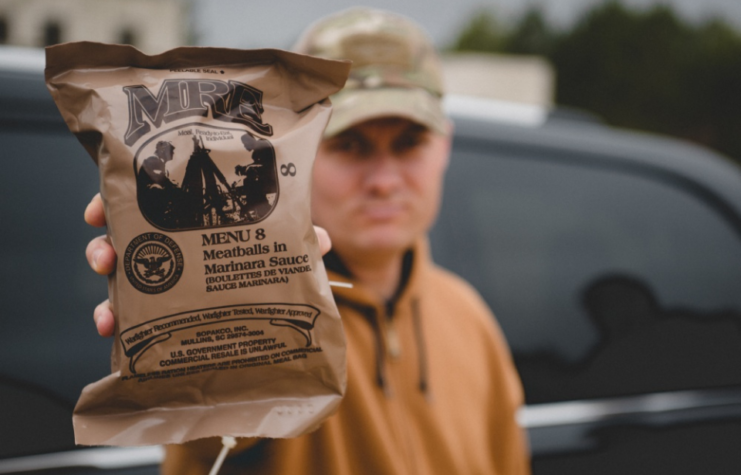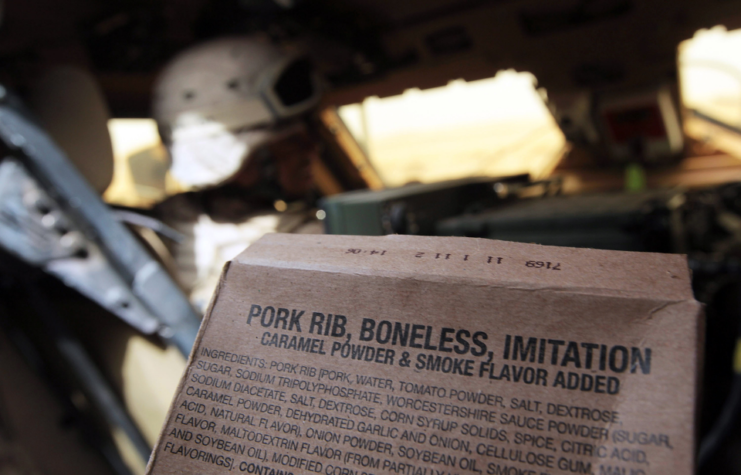In the fall of 2019, the U.S. Army Research Institute of Environmental Medicine (USARIEM) conducted a study to see whether eating MREs (Meal, Ready-to-Eat) have an effect on servicemembers’ gut health. This was looked into as more and more scientific evidence is showing that the environment within the gut can influence our health physically and mentally.
An enormous amount of bacteria and other microorganisms live inside the digestive tracts of humans and other animals, and is known as the gut microbiome. It is the relationship between the gut microbiome and the rest of our bodies that has been studied by the U.S. Army, in particular, how MREs affect servicemembers’ health.
Controlling this relationship to the benefit of the soldier may increase the chances of a successful mission, so the information could be extremely useful for the armed forces. So far, both military and civilian studies have provided evidence that the gut microbiome reacts to stress and affects how we respond to stress, and that our diet can impact it too.

Soldiers in the field are subjected to huge variations in diet, physical activity, stress, and quantities of sleep, all of which can have an impact on their gut microbiome. Some of the negative impacts are gastrointestinal problems like bloating and excess gas, and intestinal permeability, which is known as gut leakiness. Gut leakiness is where the intestinal walls weaken and allow germs from the gut to pass into the bloodstream.
When in combat conditions, soldiers will have switched from their usual diet to MREs. MREs have been rigorously designed to provide a soldier with the correct amount of fat, carbohydrates, protein, fiber, vitamins, and minerals.
Providing a soldier with the correct nutritional intake is only half of the MRE’s job, though, as they also have to stay fresh and edible for three years while surviving the tough conditions expected in combat. This means MREs are made from sterile foods that are highly processed. Although they have a shelf-life of three years, MREs can survive for much, much longer, potentially for decades.
Currently, soldiers can eat MREs as their sole form of food intake for up to 21 days. Research had been conducted to study if the meals have any negative nutritional side effects, but no research had been done to see if they have a negative effect on the gut microbiome, which could lead to gastrointestinal issues or gut leakiness.
Study on MREs’ effect on gut health
The USARIEM’s study was to test this, and it appears that MREs have no negative impacts on the gut microbiome. The study was conducted partly because of the increasing evidence the gut microbiome plays a noticeable role in how we act and feel, as well as reports from soldiers that they had gastrointestinal issues while out in the field.
Part of the study was identifying whether it is the MREs that impact gut microbiome conditions, or the environment they are eaten in.

Dr. Phil Karl was the principal investigator on the study, and said: “Usually, when someone is eating an MRE, they aren’t sitting at their dining room table to enjoy a meal.” He added, “MREs are often consumed in the field, where Soldiers can be operating in hot, cold or high-altitude environments and performing strenuous activity while not getting enough sleep. Psychological stress is also common. All of these factors can affect the gut microbiome and gut function.
“We found that the MRE does not increase gut leakiness, does not appear to negatively impact gut health, and has only subtle effects on the gut microbiome in people eating the MRE while going about their normal daily lives.”
More from us: New Material Could Power Future Cyborg Soldiers
“By having a better understanding of how the gut microbiome is impacted in an operational environment, and the role of diet in that response, we will be able to develop foods that can help make the gut microbiome, and, as a result, the Soldier, more resilient to operational stress,” Karl said. “Doing so will improve Soldier health, readiness and, ultimately, lethality.”
